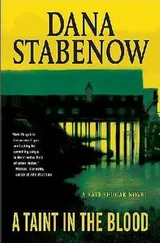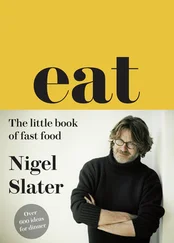Dana Spiotta - Eat the Document
Здесь есть возможность читать онлайн «Dana Spiotta - Eat the Document» весь текст электронной книги совершенно бесплатно (целиком полную версию без сокращений). В некоторых случаях можно слушать аудио, скачать через торрент в формате fb2 и присутствует краткое содержание. Год выпуска: 2006, Издательство: Scribner, Жанр: Современная проза, на английском языке. Описание произведения, (предисловие) а так же отзывы посетителей доступны на портале библиотеки ЛибКат.
- Название:Eat the Document
- Автор:
- Издательство:Scribner
- Жанр:
- Год:2006
- ISBN:нет данных
- Рейтинг книги:3 / 5. Голосов: 1
-
Избранное:Добавить в избранное
- Отзывы:
-
Ваша оценка:
- 60
- 1
- 2
- 3
- 4
- 5
Eat the Document: краткое содержание, описание и аннотация
Предлагаем к чтению аннотацию, описание, краткое содержание или предисловие (зависит от того, что написал сам автор книги «Eat the Document»). Если вы не нашли необходимую информацию о книге — напишите в комментариях, мы постараемся отыскать её.
shifts between the underground movement of the 1970s and the echoes and consequences of that movement in the 1990s. A National Book Award finalist,
is a riveting portrait of two eras and one of the most provocative and compelling novels of recent years.
Eat the Document — читать онлайн бесплатно полную книгу (весь текст) целиком
Ниже представлен текст книги, разбитый по страницам. Система сохранения места последней прочитанной страницы, позволяет с удобством читать онлайн бесплатно книгу «Eat the Document», без необходимости каждый раз заново искать на чём Вы остановились. Поставьте закладку, и сможете в любой момент перейти на страницу, на которой закончили чтение.
Интервал:
Закладка:
PART EIGHT. 2000
Ergonomica
“OUR VISION is a totally intentional community designed by Allegecom for franchising and profit. We will build on what was learned in our first community: green and self-sustaining, but not too. No gray water or too much trouble. Nothing primitive. Green for what is seen. Feel-good relief. Diverse, but not too. Different kinds of people but all with the same desires and goals — to be deliberately there. A gated community, naturally. Communal, but not really. No elimination of private property, for God’s sake. No shared lawn mowers or water heaters.
“What I am saying is we have the opportunity to make money on certain back-to-the-earth desires, for alternatives to suburbia. People who are alienated by malls and material bombardment. We can give them what they desire. We can take that spirit and exploit it for a franchisable experience if we truly understand it. People want a nostalgic, knowingly referenced community experience. But they don’t really want anything truly alternative. They don’t want a wife-sharing, Manson-esque, un-American, no-property communalism.
“We have chosen a site five hours north of New York City. Technology allows a postsuburban environment. Let’s call it a radiant posturbia. We don’t need proximity to cities. We are wired. The land we are looking at is near New Harmon, New York. One of those deserted, dying places that will grant us huge tax incentives if we build there. It is rural and beautiful but totally depressed and cheap. Moreover, it has a history of alternative community. In the nineteenth century it had a community of Christian socialists. In the early ’70s it was a women-only commune. Now it will continue its history as alternative to the city, to crime, to pollution.
“A commune and a corporate community are not all that different. A corporation is merely a commune with different values. But like a commune, everything is organized around a collusion of interests. It creates an inside and an outside. And let’s not forget, all communities are exclusive. By definition you exclude all that is outside the community. A corporation has rights and privileges that are distinct from its individual owners’, just as a commune has collective interests that supersede each individual’s interests. Both allow groups of people to act in concert but without consequence.
“Organizations eliminate personal responsibility. That is their purpose. And isn’t that what we want? Isn’t that a relief? So here is my vision for Allegecom as communard:
“Green for what is seen. What does that mean? We want an antidepressant environment. We are interested in the ecology of ease. In other words, we do what is environmentally correct unless it causes any discomfort. Green community, sure, but wired to the hilt — high speed and totally high tech. Free-access homes, built-in hardware and everything tied in to the Allegecom interface to be tracked for marketing purposes. This will also afford people maximal purchasing opportunities. No out-in-the-country deprivation here. Our motto will be ‘Local community, global convenience.’ The logo will use an Arts and Crafts font. The website will be designed to attract the nostalgic. We build archaic-looking icons on our site. We give them a retro interface — things that look old but act new. We fetishize the details.
“Then we make franchises of our radiant posturbia.
“We market meaningful community, privatize it, copyright it, trademark it. We build emotional attachment to our logo and to brand-specific experiences.
“Ultimately we make prefab communities that never feel synthetic or mass-produced. It will be the corporate village that will make money on the desire to escape corporate hegemony. We want to attract the people who hate Wal-Mart. So if we give them the feel of something alternative and unique but execute and control it according to Allegecom’s strict guidelines for optimum performance and return, and of course happiness, everyone wins.”
Josh sat down. The others at the meeting politely clapped.
Tourists
MIRANDA HAD to have one of the large whole wheat scones from the Mercury bakery. It was one scone, a single thing, and yet it was as big as your outstretched hand, as big as your head. It was a loaf of a scone. With a sort of inhalable relief and pleasure, she got her mouth around the first bite. And black, strong coffee — this was part of it. Yes, a scone, particularly a wheat one, was a dry, crumbly endeavor. So the coffee, its bracing, tannic liquidity, was an essential component of this particular pleasure. She was at it and already dreading the end of her little feast, already on first bite lamenting the diminishing mass of the thing. She felt a nearly existential sadness that her hunger could be so earthy and present but its satisfaction so abstract and impossible to accomplish.
Someone stood by her table. She looked up, an enormous bite shoved in her mouth. It was Nash, and she felt a blush of self-consciousness over the slab in her mouth. But it was at that exact moment she finally reconciled herself to the fact that she did indeed still have feelings for Nash. She realized he was one of the main reasons she felt so homesick for Seattle.
He smiled and offered a little wave. She took a gulp of her coffee. She tried to chew discreetly, politely, quickly, so she could speak. But there is no elegant way to chew a large chunk of dry, flaky scone no matter how much coffee you chase it with. What was worse was the coffee was just a tiny bit too hot for this gesture, too hot to be gulped carelessly, and so she gagged a little, inhaled a piece of pastry, and her eyes bugged and watered as she pushed her way through, crumbs spewing slightly.
“Take your time,” Nash said. He waited. “That’s really quite a monster of a pastry you got there.”
She nodded. The swallowing accomplished. “I love these scones. I sometimes used to walk all the way across town just to get one. I am a glutton of the first order. You know what I like most about them?” she said.
“Their size.”
“Yes, their glorious, single-serving, one-portion, huge size. It’s terrible. But I’m depressed, and well, that’s what I feel like.”
“A little gluttony is charming.”
“Maybe. But it isn’t something I really wanted to explore at length with anyone this morning.” Miranda stopped eating the scone. It no longer interested her. She needed a private suite somewhere where she could consume her pastry in peace. Now, well, too late. She sipped her coffee.
“I’m sorry. I was just walking by and saw you.”
“No, I’m glad, sit.”
“Are you sure?”
“I’m happy to see you.”
“You’re visiting?”
“I’ve been back for a week now. We’re staying downtown. The Ace.” Miranda smiled, slightly embarrassed. “Josh wanted to stay at a hotel.”
“So how is Josh?” Nash said.
She studied him for a moment. He was quite bald. But he had a good face, a nice-looking head. He would look better if he just shaved all his hair off, or if he cut it very, very short. “I have been meaning to call you, or come by the bookstore,” she said.
“I know.”
“He’s fine.”
“What has he been up to?”
“I’m not sure, he doesn’t tell me. I don’t really ask, actually.”
She sipped her coffee.
“You look very good. Disaffection suits a woman,” Nash said.
“He works for Allegecom.”
“Your face has thinned out, despite the monster muffins. You look very sharp and intimidating.”
“Scones. It is a scone.”
“Right, sorry. Allegecom, that’s peculiar.”
“Full-time. He works quite hard, in the website-research whatever department. I think.” She started to laugh. She really didn’t know what Josh did. And that made Josh seem grown-up and old. Older, somehow, than even Nash.
Читать дальшеИнтервал:
Закладка:
Похожие книги на «Eat the Document»
Представляем Вашему вниманию похожие книги на «Eat the Document» списком для выбора. Мы отобрали схожую по названию и смыслу литературу в надежде предоставить читателям больше вариантов отыскать новые, интересные, ещё непрочитанные произведения.
Обсуждение, отзывы о книге «Eat the Document» и просто собственные мнения читателей. Оставьте ваши комментарии, напишите, что Вы думаете о произведении, его смысле или главных героях. Укажите что конкретно понравилось, а что нет, и почему Вы так считаете.












